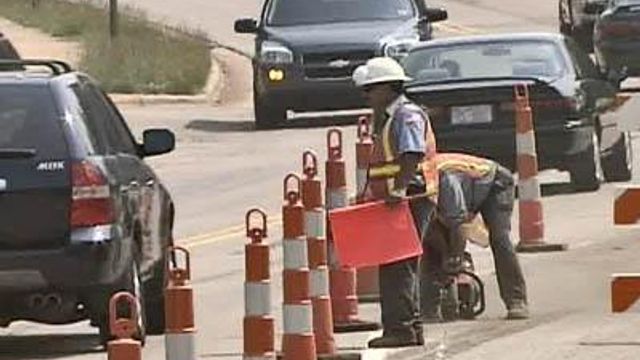Audit: Delays in Highway Projects Costly
Delays in highway and bridge construction cost North Carolina taxpayers at least $152 million in recent years as the NCDOT operated on "hunches and intuition," according to a state audit released Thursday.
Posted — UpdatedThe State Auditor's Office examined 390 highway and bridge projects completed across the state between April 2004 and last March and found that work on almost three-fourths of them didn't start the year they were supposed to start. Forty percent of the projects started more than a year late.
If the state Department of Transportation had kept those projects on schedule, the state could have saved $152.4 million in inflation-related cost increases, according to the audit.
Aside from increased materials costs associated with the delays, the audit found that highway contractors were being paid 7 percent more than the amounts specified in their contracts.
"We don't think that number is accurately reflected," DOT spokesman Ernie Seneca said of the savings estimate. "There's a lot more to the story."
The DOT saved more than $80 million on road projects that were completed ahead of schedule, Seneca said.
Auditors said the DOT lacks comprehensive project management, handling pre-construction issues like permitting and environmental studies separately from construction. As a result, the department can't properly analyze the performance of contractors and engineers and find ways to improve, the audit said.
“DOT is a multibillion-dollar state agency that appears to operate on hunches and intuition rather than hard data analysis,” State Auditor Les Merritt said in a statement.
Audit supervisor Bill Styres called the report one of the most complex he's ever worked on because the DOT doesn't organize data on its construction projects.
"Extracting the data from all the different places was difficult. They don't have a system in place already doing that for themselves," Styres said.
When the DOT does analyze the results of a highway project, those results are compared with the revised schedule or budget and not the original. The auditors contended that this method distorts any delays and cost overruns.
“It’s reasonable to expect that with any large construction project, there will be bumps in the road," Merritt said. "But taxpayers expect DOT to learn from their past projects, not simply blur the numbers to make every project appear more on-target."
The audit marked the second time in recent months that DOT management has come under fire.
The department hired international consulting firm McKinsey & Co. to study its operations, and a report issued last fall found a lack of accountability and low employee morale.
Transportation Secretary Lyndo Tippett said in a 10-page response to the state audit that the DOT has been working to improve its processes. But he said some factors in highway construction are outside of the department's control.
"These projects, we put our best estimates (on them), and that's what they were – estimates – because it's so early in the process. So much can happen along the line," Seneca said.
Many of the delays were linked to permitting and environmental reviews. The DOT and federal highway officials began streamlining those processes in 2001, after most of the projects examined in the audit had already completed those steps. So, auditors said it was unclear whether the streamlining effort had any impact on keeping projects on schedule.
Auditors said they plan to check with the DOT in six months on whether any changes have been made.
• Credits
Copyright 2024 by Capitol Broadcasting Company. All rights reserved. This material may not be published, broadcast, rewritten or redistributed.






